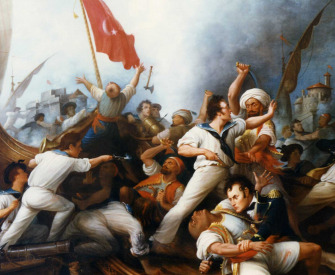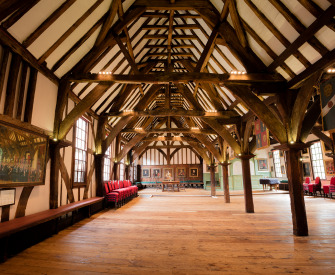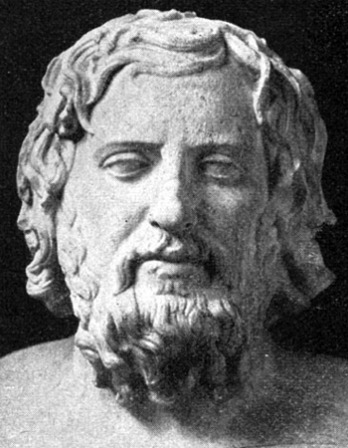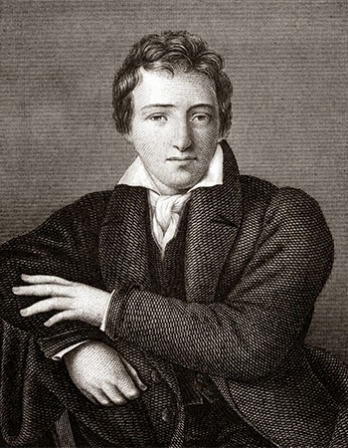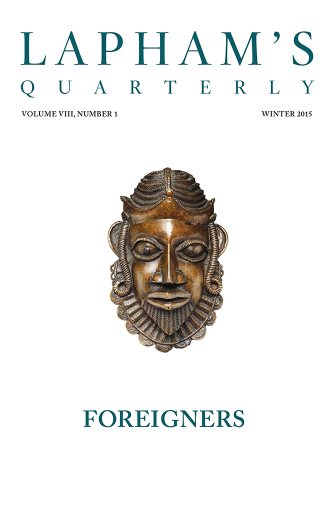Brakenbury: Why looks your grace so heavily today?
Clarence: O, I have passed a miserable night,
So full of ugly sights, of ghastly dreams,
That, as I am a Christian faithful man,
I would not spend another such a night,
Though ’twere to buy a world of happy days,
So full of dismal terror was the time!
Brakenbury: What was your dream? I long to hear you tell it.
Clarence: Methought that I had broken from the Tower,
And was embarked to cross to Burgundy;
And, in my company, my brother Gloucester;
Who from my cabin tempted me to walk
Upon the hatches: thence we looked toward England,
And cited up a thousand fearful times,
During the wars of York and Lancaster
That had befallen us. As we paced along
Upon the giddy footing of the hatches,
Methought that Gloucester stumbled; and, in falling,
Struck me, that thought to stay him, overboard,
Into the tumbling billows of the main.
Lord, Lord, methought what pain it was to drown!
What dreadful noise of waters in mine ears!
What ugly sights of death within mine eyes!
Methought I saw a thousand fearful wrecks;
Ten thousand men that fishes gnawed upon;
Wedges of gold, great anchors, heaps of pearl,
Inestimable stones, unvalued jewels,
All scattered in the bottom of the sea:
Some lay in dead men’s skulls; and in those holes
Where eyes did once inhabit, there were crept,
As ’twere in scorn of eyes, reflecting gems,
Which wooed the slimy bottom of the deep,
And mocked the dead bones that lay scattered by.
Brakenbury: Had you such leisure in the time of death
To gaze upon the secrets of the deep?
Clarence: Methought I had; and often did I strive
To yield the ghost: but still the envious flood
Kept in my soul, and would not let it forth
To seek the empty, vast, and wandering air;
But smothered it within my panting bulk,
Which almost burst to belch it in the sea.
Brakenbury: Awaked you not with this sore agony?
Clarence: O no, my dream was lengthened after life;
O, then began the tempest to my soul,
Who passed, methought, the melancholy flood,
With that grim ferryman which poets write of,
Unto the kingdom of perpetual night.
The first that there did greet my stranger soul,
Was my great father-in-law, renowned Warwick;
Who cried aloud, “What scourge for perjury
Can this dark monarchy afford false Clarence?”
And so he vanished: then came wandering by
A shadow like an angel, with bright hair
Dabbled in blood; and he squeaked out aloud,
“Clarence is come; false, fleeting, perjured Clarence,
That stabbed me in the field by Tewksbury:
Seize on him, Furies, take him to your torments!”
With that, methoughts, a legion of foul fiends
Environed me about, and howled in mine ears
Such hideous cries, that with the very noise
I trembling waked, and for a season after
Could not believe but that I was in hell,
Such terrible impression made the dream.
From Richard III. Relying on Raphael Holinshed’s Chronicles of England, Scotland, and Ireland for the outline—as he did for, among other plays, King Lear and Macbeth—Shakespeare composed Richard III between 1592 and 1594. In addition to The Tempest and Twelfth Night, both predicated on shipwrecks, the playwright evoked the sea often: “No: this my hand will rather / the multitudinous seas incarnadine,” says Macbeth; King Lear addresses ingratitude, “more hideous when thou show’st thee in a child/than the sea monster!”
Back to Issue

